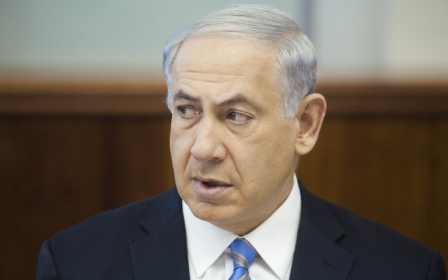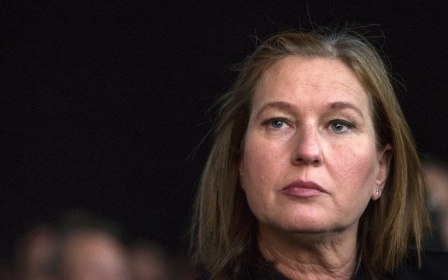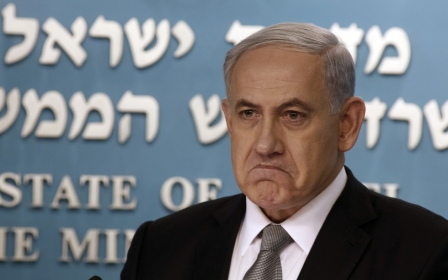Herzl doesn't live here anymore

"Could we remain here, could we hope for better days?" This was the question asked by Theodor Herzl regarding the future of Jews in Europe in his booklet The Jewish State, the founding text of the Zionist movement published in 1896. His answer was painfully clear. "All the peoples among whom we live, whether secretly or openly, hate us." The conclusion: only in an independent state could Jews be safe.
More than 100 years later, Prime Minister Benjamin Netanyahu reiterated Herzl's conclusion almost by the word. The deadly attack on the kosher grocery in Paris, according to Netanyahu, was just another reminder for French Jews that there is only one cure for the anti-Semitism they are suffering from us: to emigrate to Israel, the only place where Jews could really feel safe.
By these remarks Netanyahu proved his loyalty to the most orthodox version of Zionism according to which there is no future for Jews outside Israel and living in diaspora is not only dangerous but also illegitimate. Once an independent Jewish state was founded in Israel, the existence of Jews in Europe and elsewhere could be regarded only as temporary. They should to emigrate to Israel not only for their own sake, but also as part as their duty as Jews.
For obvious reasons, the French government did not like Netanyahu's words, seen both as an act of distrust in their ability to protect their own citizens as well as an interference in the very fabric of French society. When the French Prime Minister Manuel Valls said that "France will no longer be France" if the Jews will leave - he was trying to reassure the Jewish community but also to discredit Netanyahu's remarks.
Israelis question call to immigrate
Yet opposition did not come only from the French authorities. Natan Sharansky, chairman of the Jewish Agency who was nominated to the job by Netanyahu himself, said that Israel must not be seen as "dancing on the blood" of the events in Paris. Enrico Macias, a famous French Jewish singer who is extremely popular in Israel, told the Israeli Channel 2 that the Jews of France "should not immigrate out of fear from anti-Semitism but only because of their will to live in Israel."
Zionism, as reflected in Herzl’s words, was based on the negation of the diaspora as an option for Jews to live in dignity and security. Yet over the years, this approach became much less intransigent. Israel learnt to accept the diaspora Jews as a fact and even legitimise their living outside of Israel.
This is very evident in Israel's attitude towards American Jewry. No serious Israeli leader will dare to call upon the Jews in the US to come to Israel – and not only because of the fear of American reaction. The six-million-strong American Jewish community is regarded as one the main assets Israel has in the US and maybe even worldwide.
While there is a heated discussion as to how critical is the pro-Israeli Jewish lobby in shaping US policy in the Middle East, no one can seriously dispute its importance for Israel. Netanyahu himself, who spent more than a decade in the US as a young man, is a master in profiting from its power. Sheldon Adelson, the multi-billionaire who spent $100 million in ads against President Barack Obama while owing a daily newspaper in Israel (Israel Hayom) highly supportive of his close friend Netanyahu, is just another example in this respect.
American Jewry 'a strategic asset'
Recognition the importance of American Jewry spilled over to the attitude towards Israelis who emigrated to the US. For many years this community, estimated at half a million people, was ignored and often despised. By emigrating out of Israel they threatened the basic Zionist concept that Israel is the best and most safe place for Jews.
In recent years, official Israel changed its policy towards them. The same Adelson contributed generously to their relatively new organisation, the Israel American Council (IAC). Israeli officials like Economy minister Naftali Bennett and Sharansky met with them and congratulated them for being "a strategic asset for Israel", thus legitimising not only the Jewish diaspora born in the US but also Israeli Jews who preferred it to the promised land.
The story of the Jewish community in France is somehow different. The overwhelming majority, 80 to 95 percent, is relatively new in France, arriving there from North Africa from the 1950s onwards. The original Ashkenazy Jews either assimilated into French society or emigrated elsewhere.
Daniel Ben Simon, an Israeli writer and journalist born in Morocco and ex-member of the Israeli parliament from the Labor party, describes this community as "the most Jewish" in respect to other Jews communities in the world and certainly the most "Israeli". The Jews from Morocco, Algeria and Tunis, explains Ben Simon, were divided in to two: half immigrated to France and half to Israel.
Thus almost all French Jews have first- or second-degree relatives in Israel. They visit them regularly, buy property in Israel and genuinely feel that it is their second homeland. Many of them speak Hebrew, says Ben Simon, and when you visit their homes in France you have the feeling you are in Israel, with pictures of Israeli landscape and portraits of rabbis on the wall.
French Jews' incredible success
But at the same time, stresses Ben Simon, the story of North African Jews in France is one of incredible success. After only one or two generation in France, they climbed to the highest positions in every walk of life. According to Ben Simon, 60,000 of the 600,000 Jews living in France are doctors, some of France's most eminent thinkers, politicians, journalists and businessmen are Jews of North African origin. Ben Simon's neighbour from Casablanca, Prof Serge Haroche, won the Nobel Prize in Physics in 2012.
Their success in France stands in stark contrast with their relatives who emigrated to Israel, who – 60 years after the huge waves of immigration – occupy the lowest echelons in Israeli Jewish society. Ben Simon says that it is not uncommon to see a French Jew who serves as a president of a university in Paris visiting his Israeli brother who works as a manual labourer and lives in a squalid apartment in a provincial town, far from Tel Aviv.
Because of their strong attachment to Israel, explains Ben Simon, Netanyahu's call to leave France resonates deeply within the hearts of French Jews, more than anywhere else in the Jewish world. But at the same time, these Jews are required to give up on a country which stretched out its arms and embraced them, maybe even more so than their beloved Israel did for their relatives.
Like many observers, Ben Simon predicts that Netanyahu's call will have limited effect on French Jews. Immigration may rise, but it will not resemble the waves of Jews leaving the ex-Soviet Union at the beginning of the 1990s.
Thoughts on electoral gains certainly played a part in Netanyahu's decision to portray himself as the champion of Jewish and Zionist pride, the only one capable of saving Jews from all adversities. But it also reflected his deep commitment to the Zionist ideals as he conceives them.
What Netanyahu did not realise is that things have changed in the last 100 years since Herzl. More Israelis learnt to regard being part of the diaspora as a normal condition for Jews, something that might be even aspired to - in New York, Los Angeles and even in Berlin. Less diaspora Jews regard Israel as their safe haven. Netanayahu's conservative version of Zionism seems somehow anachronistic.
- Meron Rapoport is an Israeli journalist and writer, winner of the Napoli International Prize for Journalism for a inquiry about the stealing of olive trees from their Palestinian owners. He is ex-head of the News Department in Haaertz, and now an independent journalist.
The views expressed in this article belong to the author and do not necessarily reflect the editorial policy of Middle East Eye.
Photo: Israeli Prime Minister Benjamin Netanyahu (AFP)
New MEE newsletter: Jerusalem Dispatch
Sign up to get the latest insights and analysis on Israel-Palestine, alongside Turkey Unpacked and other MEE newsletters
Middle East Eye delivers independent and unrivalled coverage and analysis of the Middle East, North Africa and beyond. To learn more about republishing this content and the associated fees, please fill out this form. More about MEE can be found here.





